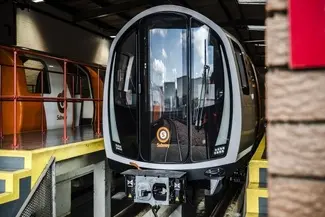Autonomous machinery control system reduces human reliance
Rolls-Royce develops an autonomous machinery control system that will enable naval vessels to conduct long endurance tasks without the need of full human interaction, aiming to the future of unmanned vessels and less human errors.

Rolls-Royce develops an autonomous machinery control system that will enable naval vessels to conduct long endurance tasks without the need of full human interaction, aiming to the future of unmanned vessels and less human errors.
Specifically, the so called 'Artificial Chief Engineer' will replace the existing engineering department, which is responsible for the health and the operation of an unmanned vessel’s machinery.
In line with this technology, the Navy will be able to reduce their reliance on manpower and will manage to conduct high-risk and long-endurance missions and by lowering the procurement and operating costs of future platforms.
The system will control and operate the machinery of lean-manned and unmanned naval vessels. It will make decisions based on the conditions of a situation and understand how to operate the machinery, including the engines, propulsion system, electrical network and fuel system, in the best possible ways.
The decision-making operation is based on the use of algorithms to optimise the ship for maximum efficiency, lowest noise, top speed or to preserve damaged equipment as required by the ship’s mission.
Colin Field, Naval Autonomous Systems Engineer at Rolls-Royce stated
"Now that we have a live Artificial Chief Engineer demonstrator, we want to share and refine our vision of how we believe unmanned vessels should be designed and operated – we want to connect with potential collaborators and help our naval customers realise the benefits of autonomy."
In late 2018, Rolls-Royce in collaboration with Finferries presented the world's first fully remote and autonomous ferry.















![AIRBUS A380 [MORE THAN 600 PASSENGER’S CAPACITY PLANE]](https://cdn.tinn.ir/thumbnail/4jCp4EQvCU0b/IjHVrSYQrIAqIzXuTzADR7qLYX4idQT4nfq__26E5SCUPLMqfhWkWajvuO9Wfq1ql1TjV4dhkrHliNQU82kMpo2NNftT_NGEwHc9KXtN_rk731bmifa2IQ,,/airbus-a380-structure1.jpg)

Send Comment